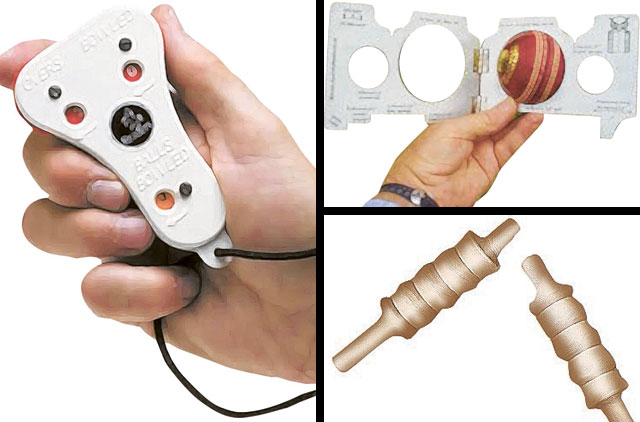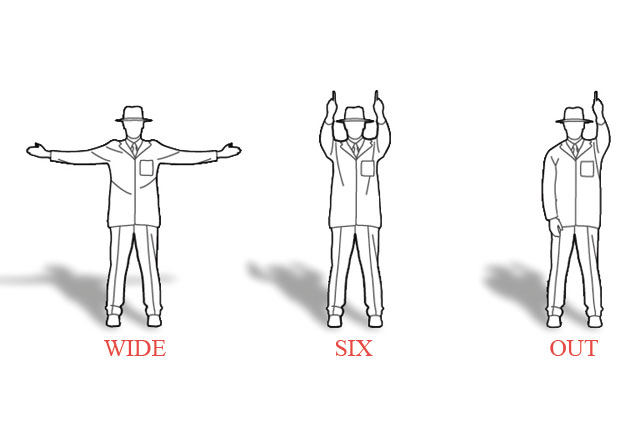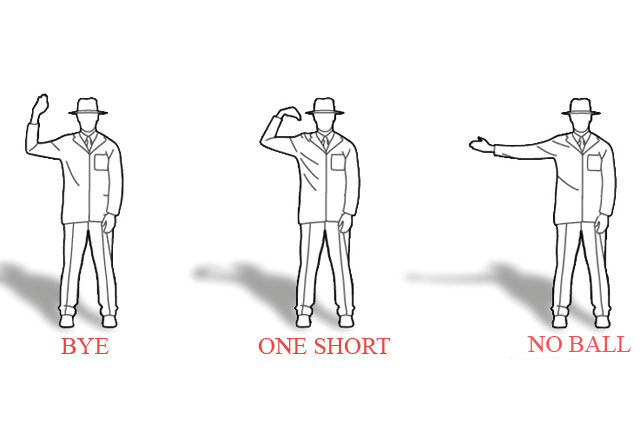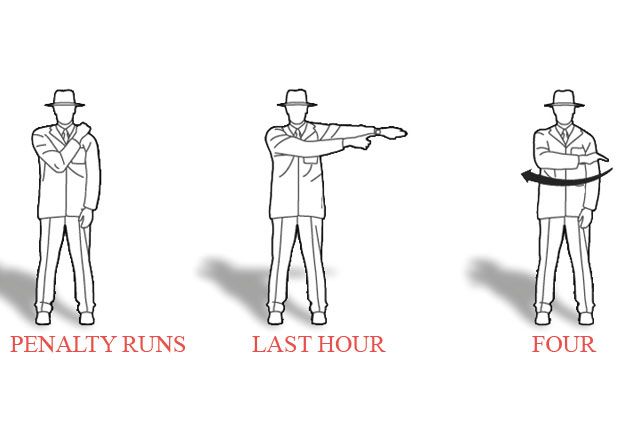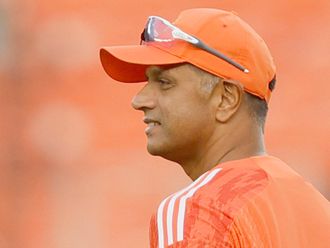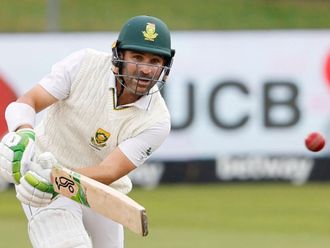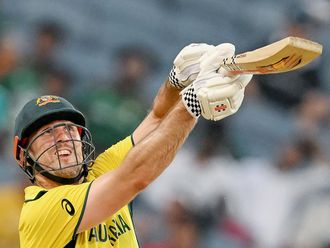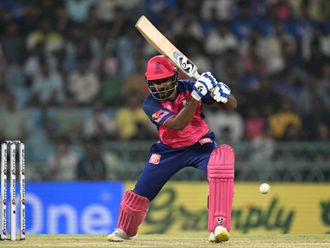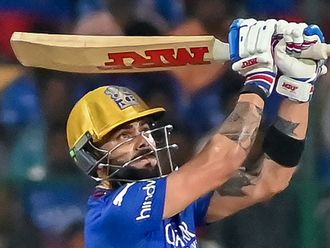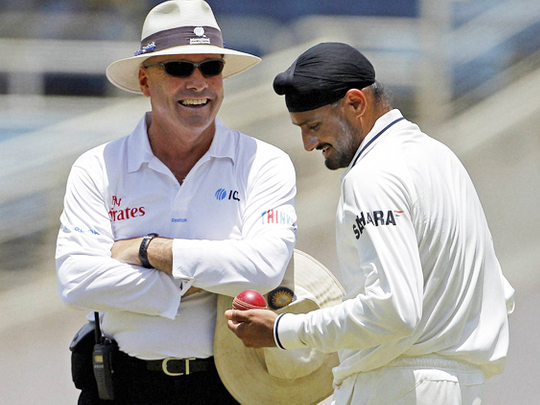
Dubai: It is often said that umpiring is a thankless job. It was, years ago when umpires were not paid well, and often the reward was just the brunt of criticisms when they went wrong.
Today umpiring is a lucrative profession especially, if you can reach the elite panel. Speaking to Gulf News, David Richardson, the International Cricket Council (ICC) General Manager, said: "Umpiring is a difficult but potentially very rewarding job. It's a great way to be directly involved in the game and, at the higher levels, it provides wonderful opportunities to travel the world, experience different cultures and meet interesting people."
The ICC do not divulge how much an umpire will earn per match, but Richardson said: "These days umpiring is a well paid profession, and so it has become an attractive career option for those who love the game and who have the dedication and ability required to make it. In fact, the remuneration levels of the elite umpires are similar to, if not better than, the earnings of top commentators, coaches and even players from most international teams."
To be an umpire, the most important quality that one should possess is a huge passion for the game. It should be so strong that it should override hours of tough duty under the scorching sun. Only an umpire who enjoys the game can do justice to his duty.
Richardson assigns umpires for almost all international matches and also picks the best from the umpires around the world. When asked what an umpire could do to be among the best, Richardson said, "Umpiring is not for everyone as the demands of pressure and time away from home can be punishing. But the rewards are definitely there for those who are successful and have what it takes to make it."
Incidentally, Australian newspaper Herald Sun once reported that umpire Steve Bucknor earns around $120,000 (Dh440,700) a year for 34 days of officiating, which is equivalent to $440 an hour. In 2008, the Sunday Times reported that the England Cricket Board increased the salary of their umpires by £5,000 (Dh29,300) to make it £35,000 when they were on the verge of being contracted by the Indian Cricket League.
With high-tech television scrutinising every decision of an umpire, the job has become even more stressful than in the past. Years back while I was attending umpiring classes by legendary umpire late A.M. Mamsa, he asked what was the quality that was needed to become a good umpire? Some said that an excellent knowledge of the laws would make a good umpire while some others said it was the ability to concentrate. A few others said that only an umpire with sharp senses would be successful. Mamsa turned down everything and said the most important qualify of an umpire was common sense and the ability to interpret the law by properly diagnosing what had occurred.
Dedication
Two of the world's best umpires, Simon Taufel and Aleem Dar, have this quality in plenty because they can be seen interpreting the law with ease. Though human error can stump them too, they don't waver in their basics.
The dedication towards the profession also has to be much more than that of a player. The aim of an umpire should be to get more decisions correctly than fame. In fact, during an interview, Dicky Bird said: "An umpire should aim to ensure that his name does not appear in a newspaper. Often an umpire's name appears in a newspaper only when he makes a mistake."
An ardent lover of the game can derive happiness by being an umpire than a cricketer. The lifespan as a player is much shorter than as an umpire and, in fact, an umpire can climb greater heights with age and experience.
Tale of cricketers-turned-umpires
There are many former cricketers who have taken umpiring as their profession after retiring from the game. Very few know that the first reputed cricketer to become an umpire was Frank Chester, a former English cricketer who lost an arm in the First World War. He earned laurels as an umpire from 1924-1955 a career spanning over three decades and 48 Tests.
Among the international cricketers who turned elite umpires is India's former captain S. Venkataraghavan. After playing in 57 Tests and 15 One-dayers he retired and officiated in 73 Test matches and 52 One dayers. Kumara Dharmasena, who is in the present elite panel represented the Sri Lanka national team for over a decade and was member of Sri Lanka's 1996 World Cup winning squad. In fact, he became the youngest international umpire when he made his debut in a One-dayer in 2009 at the age of 38. Another international cricketer turned umpire in the elite panel is Ian Gould. He played in the 1983 World Cup for England and bagged 12 victims which included Sunil Gavaskar, Javed Miandad and Ranjan Madugalle.
Asoka De Silva who was recently dropped from the international umpires panel had played in 10 Test matches for Sri Lanka and so has Peter Willey who played 26 Test matches for England.
* The term umpire emerged from the French word nompere meaning not equal, i.e. not a member of one of the teams and impartial. Umpire is a person who has the authority to make judgements on the cricket field, according to the laws of cricket.
* The International Institute of Cricket Umpires and Scorers (IICUS) — a joint UK-Australia venture — provides quality training and examination for umpires. In addition to running umpires courses in the UK and Australia, it has held an umpire training course in Nepal at the request of the ICC.
* Steve Bucknor of West Indies who officiated in 128 Test matches holds the record for officiating in the maximum number of Test matches. Rudi Koertzen of South Africa who officiated in 209 matches holds the record for officiating in maximum One-day internationals.


